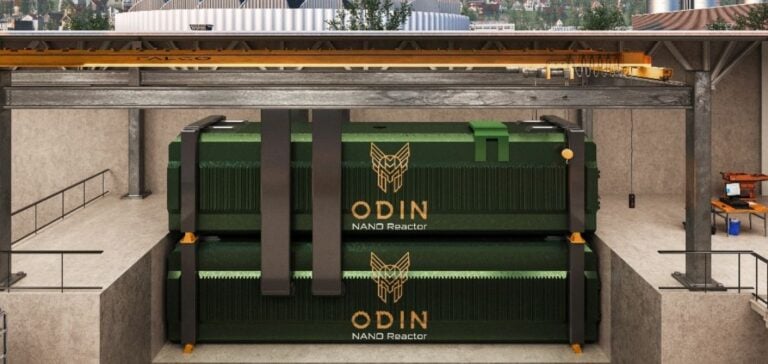NANO Nuclear Energy adds two specialist researchers, Anuj Dubey, Ph.D., and Congjin Ding, Ph.D., to its nuclear engineering team. Their arrival is part of the company’s strategy to accelerate the development of ‘ODIN’, a microreactor designed to offer portable and flexible energy solutions. The project focuses on the use of existing components with a high level of technological maturity (TRL), and on optimizing the test and validation phases to reduce costs and lead times.
Expertise in Nuclear Research and Engineering Development
Prof. Dr. Dubey, a post-doctoral researcher at the University of Cambridge, works on computational tools for advanced reactor analysis.
He is involved in the European Sodium Fast Reactor (ESFR-SIMPLE) project, bringing valuable experience in reactor design. Prof. Dr. Ding, also from Cambridge, focuses on gas-cooled reactors and thermal modeling, with expertise in fuel failure detection.
Their integration aims to strengthen NANO Nuclear ‘s capabilities in technical analysis and reactor engineering.
The ‘ODIN’ microreactor stands out for its design approach using fuel with up to 20% enrichment, a tested technology that minimizes thermal effects and optimizes cooling management.
This strategy enables us to build on a solid data base and limit the risks associated with new developments.
Strategic Objectives and Technical Challenges
By integrating these researchers, NANO Nuclear aims to reduce the uncertainties associated with the validation phase of its microreactor.
Data collected from the test facilities will be used to validate models and support certification processes, crucial to any technological breakthrough in the nuclear sector.
The company aims to position ‘ODIN’ as a viable alternative to traditional energy solutions, with potential for application in a variety of environments, including remote areas.
The step-by-step development approach, with an emphasis on reliability and cost reduction, focuses on rigorous testing.
The new skills brought in by Drs.
Dubey and Dr. Ding.
Ding will help refine the thermal-hydraulic and neutronic models that are essential to the success of any advanced reactor project.
Outlook for the Nuclear Sector
NANO Nuclear’s progress in the field of micro-reactors illustrates a growing trend towards modular, transportable energy solutions.
The development of ‘ODIN’ could meet specific market needs, particularly in terms of flexibility and rapid deployment.
The strengthening of its technical team underlines the importance of cutting-edge expertise in overcoming the challenges of nuclear innovation and ensuring rapid progress towards commercialization.






















